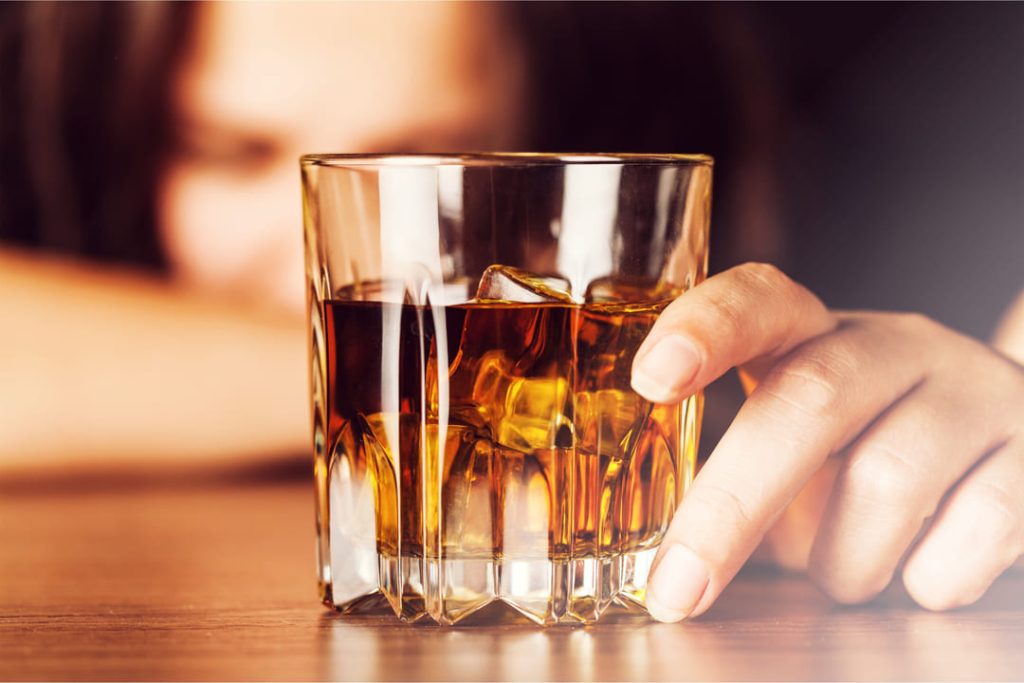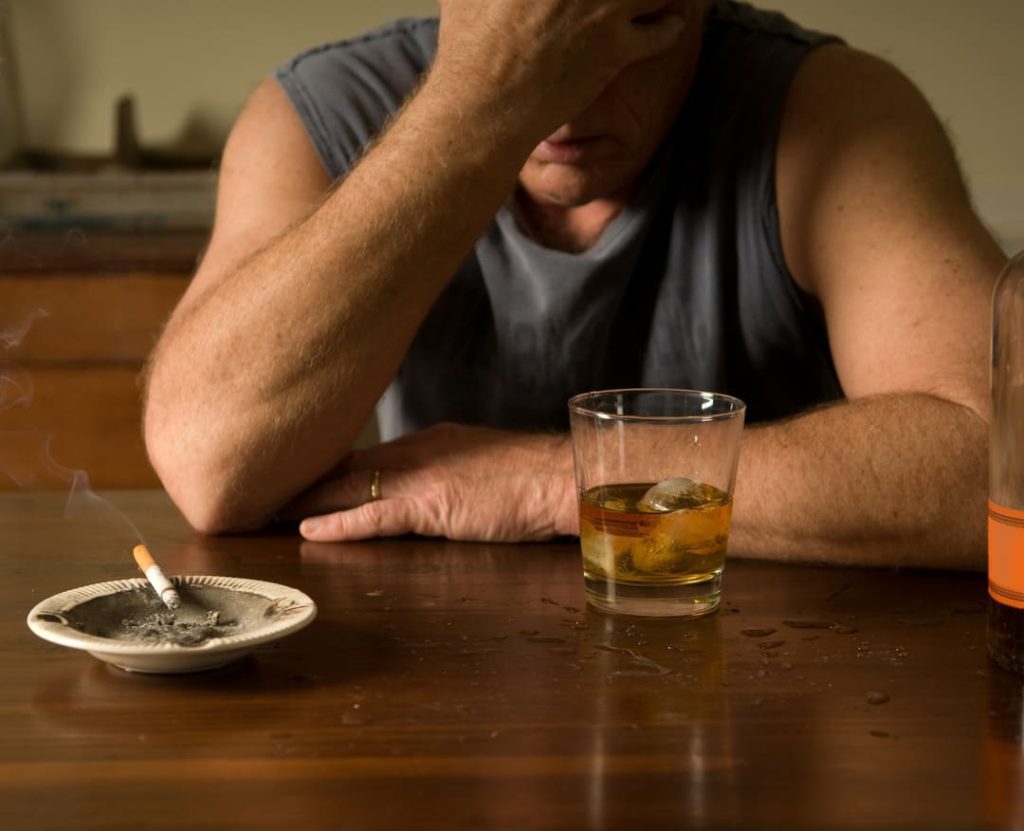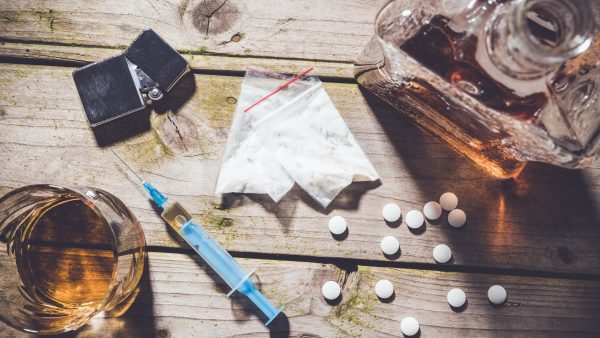Looking for Expert-Level VA Claim Answers?📱Call Us Now! 737-295-2226
It’s a harsh reality that those charged with defending our nation’s freedoms too often become trapped by alcohol abuse and addiction.
According to the National Institute on Drug Abuse (NIDA), more than 1 in 10 veterans has been diagnosed with a substance abuse disorder, and alcohol is particularly problematic. When surveyed about their alcohol use in a one-month period, 56.6% of veterans reported using alcohol (vs. 50.8% of civilian counterparts), and 7.5% reported heavy drinking (vs. 6.5% of civilian counterparts).
Among those veterans who enter treatment programs, 65% report alcohol as the substance they most often abuse, which is double the use by the general population.
- Why such a strong link?
- Myth 1: My substance abuse indicates poor character and weakness on my part.
- Myth 2: I could lose other benefits if they find out I am an alcoholic.
- Myth 3: I can’t get veterans benefits for my alcoholism because it is not a direct service-connected disability.
- Myth 4: My alcohol use disorder wasn’t diagnosed when I was in the military, so I can’t get benefits.
- Myth 5: I’m functioning OK. Why do I need help?
- Myth 6: I can never get better.
- Myth 7: My VA disability claim was denied in the past. That door is closed.
- NEED MORE ASSISTANCE?

Deserve a Higher VA Rating?
Book a no-obligation VA Claim Discovery Call with an experienced team member. We’ll review your situation, spot what the VA may have missed, and help you map out a strategy to unlock the VA disability rating and tax-free compensation you’ve earned for your service. Click the red button below to book your call.
Why such a strong link?
Different aspects of military life can raise a soldier’s risk for alcohol addiction.
These include:
- Deployments/combat. Deployments can tax both physical and mental health. There’s the physical stress on the body from rigorous deployments and the challenge of being separated from the usual support system of family and friends back home.
This can be compounded by near-death experiences, ongoing fear of harm, death of fellow soldiers, irregular sleep schedules, and the challenge of re-adjusting to civilian life once the deployment ends.
- Combat-related injuries. Depending on the injury, a soldier could have to face life without a limb, or at least without the full use of it, disfiguring burns, nerve damage, etc. These injuries can bring a profound sense of loss and cause fear for the future.
There’s also the issue of constant pain from combat injuries that leads some service members to self-medicate with alcohol and other substances.
Yet, despite these obvious stressors, and the large number of veterans struggling with alcohol abuse, this disorder is shrouded in myths and misconceptions that keep people from getting the VA help they need.
Myth 1: My substance abuse indicates poor character and weakness on my part.
“If I just had more willpower, I wouldn’t be dealing with this.”
This is a common line of thought but a flawed one. There’s a complex web of contributors underlying your alcohol addiction.
Genetics is one factor. Consider a study by researchers at the Molecular Neurobiology Branch of the National Institute on Drug Abuse (NIDA), National Institutes of Health, in 2006. The study was made possible by the Human Genome Project in 2003 and linked a predisposition to alcoholism to 51 chromosomal areas.
This certainly doesn’t mean that every child of an alcoholic parent will be an alcoholic, but when a genetic risk factor is combined with other risk factors, the pull toward alcoholism can become very powerful.
As discussed earlier in the article, the challenges of military life can significantly raise risk factors for alcoholism. This is especially true if you have been deployed, injured during your service, and/or developed mental health challenges such as PTSD related to your service.
No soldier asks for the negative effects of military life. However, these effects often come regardless, and they can drive veterans to overuse alcohol in a way they never would have without military-related triggers.
Myth 2: I could lose other benefits if they find out I am an alcoholic.
If you are receiving VA disability benefits, you will not lose them if you admit to having an alcohol addiction. In fact, you can tap into many military resources once you are willing to seek help, and you may even be able to increase your VA benefits.

Myth 3: I can’t get veterans benefits for my alcoholism because it is not a direct service-connected disability.
It’s true that the military does not treat alcohol abuse (or any substance abuse) as a direct service-connected disability. However, alcohol use disorder can still qualify you for benefits.
Many veterans are able to get VA benefits for their alcoholism by establishing a secondary service connection. This connection develops because of a direct service-connected disability.
For example, if your military service left you with PTSD and your PTSD triggered your alcohol abuse disorder, you can file a claim establishing your alcoholism as a secondary service connection.
Another example would be chronic pain from a military injury that triggered your alcoholism. If you can prove this link, you may be able to get benefits for your alcoholism as a secondary service-connected disability.
Myth 4: My alcohol use disorder wasn’t diagnosed when I was in the military, so I can’t get benefits.
While an in-service disability diagnosis can help, it is not necessary for getting benefits. Your top priority is to get to a doctor (either VA or private) and get a diagnosis for your alcohol abuse disorder now.
In order to get VA benefits for your alcohol abuse, you will need to show that a service-connected disability caused your substance abuse.
You will need:
- A diagnosis for a service-connected condition (a disability that developed due to your military service)
- A diagnosis of an alcohol abuse disorder
- A medical nexus letter, which is a medical opinion from a doctor linking your alcohol abuse disorder to your service-connected condition
- Proof that your substance abuse is not willful misconduct. You will need to show the VA that your alcohol abuse is not intentional and deliberate. Your alcohol abuse could be considered “intentional and deliberate” if you cannot show that it was caused by any service-related factors.
- You may also want to get “buddy letters” from family, friends, or co-workers who can show that your alcoholism developed over time due to your service-connected disability. These are not required, but they can strengthen your claim in some cases by showing how your drinking patterns changed over time (they became more frequent or involved stronger types or larger quantities of alcohol). They could also show how your alcoholism affects your ability to work and function in relationships.

Myth 5: I’m functioning OK. Why do I need help?
Many people resist treatment because they’re not passed out on the floor drunk all the time. They’re functioning…or so they think (though their loved ones likely tell a different story).
Here are a few signs that you may have an alcohol abuse disorder:
- Drinking because you need to vs. simply drinking for enjoyment
- Drinking too much and for too long (difficulty stopping once you start)
- Continually thinking about your next drink
- Prioritizing alcohol over other aspects of your life (health, relationships, work responsibilities, family responsibilities, etc.)
- Needing more and more alcohol to feel satisfied
- Trying to cut back without success (and experiencing withdrawal symptoms when you do)
This is not a comprehensive list, and you do not need to have all these symptoms to be diagnosed with alcohol use disorder.
To start your journey toward help and wellness, contact your physician.
Myth 6: I can never get better.
While it’s easy to feel hopeless when you’re caught in a cycle of addiction, research shows that there’s a lot of reason for hope. A 2020 study published by the Centers for Disease Control and NIDA showed that 75% of people who experience addiction eventually recover. When reporting this story, National Public Radio said it this way: “Life after addiction isn’t just possible; it’s the norm.”
The first step is to seek help. By getting a diagnosis and applying for VA disability benefits, you can get financial resources to help you on the road to recovery.
Other Resources:
- 24/7 Veterans Crisis Line – DIAL 988, Press 1
Veterans and their loved ones can get caring and confidential help from specially trained VA responders. - SAMHSA National Helpline – 1-800-662-4357
The Substance Abuse and Mental Health Services Administration can connect you with a nearby treatment facility or support group. - National Call Center for Homeless Veterans – 877-424-3838
This resource can be a lifeline for those who are struggling with alcohol addiction and homelessness. You can learn about homelessness and substance abuse treatment programs and connect with healthcare resources.

Myth 7: My VA disability claim was denied in the past. That door is closed.
Countless veterans have had success appealing their previously denied claims. Claims are denied for many reasons.
You may be missing evidence that shows a strong enough connection between your alcohol addiction and your service-connected disability. There can also be small clerical errors that derail your case. (To err is human, and the VA is staffed by humans.)
Thanks to the 2019 Appeals Modernization Act, the appeals process is much faster and more streamlined than it has been in the past. Read this article on submitting an appeal, and check out VA Claims Insider’s membership programs. These programs will connect you with individualized VA consulting to maximize your success with your VA disability claim appeal.
And if your addiction leaves you compromised to the point that you can’t work, you may be eligible for Total Disability Individual Unemployability (TDIU). This benefit is compensated at the same rate as 100 percent permanent and total disability pay.
Many veterans have been able to increase their VA disability pay to 100 percent by successfully submitting a claim for their alcohol use disorder. You can exit the spinning cycle of abuse and discover a hope-filled future. Contact us for educational resources and support to help you submit your VA claim.

NEED MORE ASSISTANCE?
Most veterans are underrated for their disabilities and, therefore, not getting their due compensation. At VA Claims Insider, we help you understand and take control of the claims process, so you can get the rating and compensation you’re owed by law.
Our process takes the guesswork out of filing a VA disability claim and supports you every step of the way in building a fully-developed claim (FDC)
If you’ve filed your VA disability claim and have been denied or have received a low rating—or you’re unsure how to get started—reach out to us! Take advantage of a VA Claim Discovery Call. Learn what you’ve been missing—so you can FINALLY get the disability rating and compensation YOU DESERVE!


